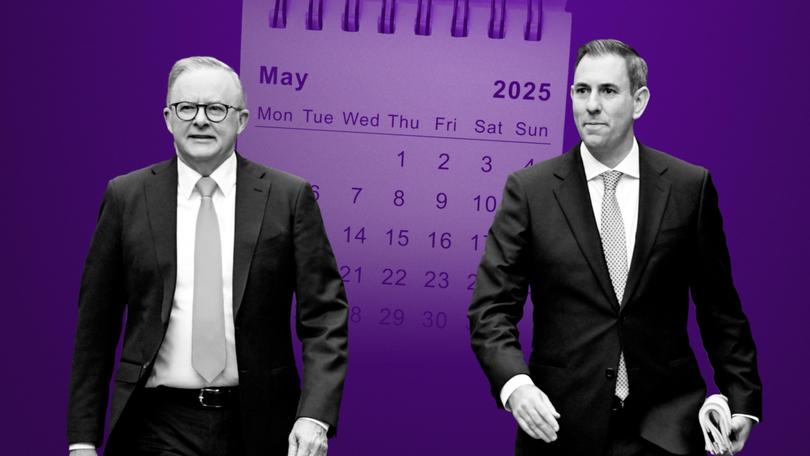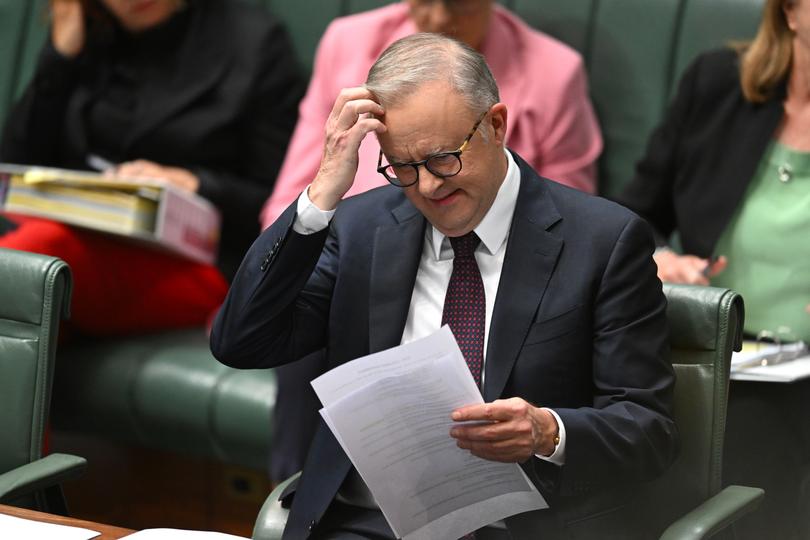MARK RILEY: Holding out for a May Federal election holds risks and rewards for Labor
MARK RILEY: Canberra’s senior bureaucrats are planning shorter Christmas breaks in preparation for a March election. That does not mean there is going to be one.

Canberra’s senior bureaucrats are planning shorter Christmas breaks this year as departments shift into overdrive with preparations for a March election.
That does not mean there is going to be one.
But it does mean department heads have told their staff to be fully prepared for one in case the Prime Minister does pull the trigger early in the New Year.
Sign up to The Nightly's newsletters.
Get the first look at the digital newspaper, curated daily stories and breaking headlines delivered to your inbox.
By continuing you agree to our Terms and Privacy Policy.Senior bureaucrats tell me the level of departmental activity is unprecedented.
They are in the unenviable position of having to plan for four possibilities over the next six months.
All of them are big. But only one is a certainty.
Treasurer Jim Chalmers will deliver a Mid-Year Economic and Fiscal Outlook next month.
That is the official Budget update. It will happen. And it requires a heck of a lot of preparation.
The other three are all in the hands of the Prime Minister.
If he proceeds with his original plan, there will be an early Budget in March followed by a Federal election in May.
But there is also a possibility that if things go well for Anthony Albanese over the summer break, he could move after Australia Day to call an early election for March.
It is a secondary option at present. But it is an option, nonetheless.
And the departments need to be ready for each possibility. Hence the frenetic levels of activity and penetrating anxiety running through the upper echelons of the bureaucracy.
Albanese’s disposition from the outset has been to go long.
He’s made no secret of that.
When asked about election timing over the past year, he has delivered variations of the same soliloquy. Governments should see out their full terms. That’s what voters expect.
Three years is too short. We should have four-year Federal terms. But that would require a referendum and (ahem!) the recent history with those hasn’t been too crash hot.

Waiting until May presents benefits and challenges.
It gives Albanese more time to sharpen the Government’s central pitch for re-election, which will be under the umbrella of “Building Australia” — building homes, building industries, building a Future Made in Australia.
It also gives him more time to highlight what he sees as the risks of a Peter Dutton-led alternative.
The prevailing belief is that bringing the Budget forward to March would give the Government a big platform from which to launch a May election, allowing it to set the agenda and dominate the news cycle with its big-ticket announcements.
Scott Morrison used that template twice. It worked for him gloriously in 2019. It failed dismally in 2022.
And there is a big risk for Albanese with an early Budget this time.
Treasurer Jim Chalmers would have to add another out-year to the projections. The four-year budget cycle would run to 2028/29, rather than the present 2027/28.
Why does that matter? Because in a softening international economic climate, the longer the outlook goes the worse the numbers appear.
Adding another deficit year to the calculations would mean all the previous projections between up to 2027/28 would also have to be revised down and, suddenly, Labor’s economic narrative looks shaky.
The Government’s good story about two successive surpluses would be overwhelmed by deficits for as far as the eye can see.
No government wants that, particularly one facing a cost-of-living election.
Going longer, though, increases the chance of the Government achieving its wish of an interest rate cut before the election to give families some tangible relief.
After the slight increase in underlying inflation this week, most economists are now predicting that first cut to come in May — possibly in the middle of an election campaign.
The Government would trumpet that as evidence that its economic plan is working and hope that it is the one thing that dominates voters’ minds as their pencils hover above the ballot papers.
But it’s risky. If it doesn’t happen, Dutton would parade that as proof positive of the Government’s economic failure.
There are pros and cons with both options. In the end, only one person knows whether it will be March or May. And that is Anthony Albanese.
In the meantime, senior bureaucrats will be spending less time with the sunscreen and more in front of their computer screens as the nation plays the election waiting game.

